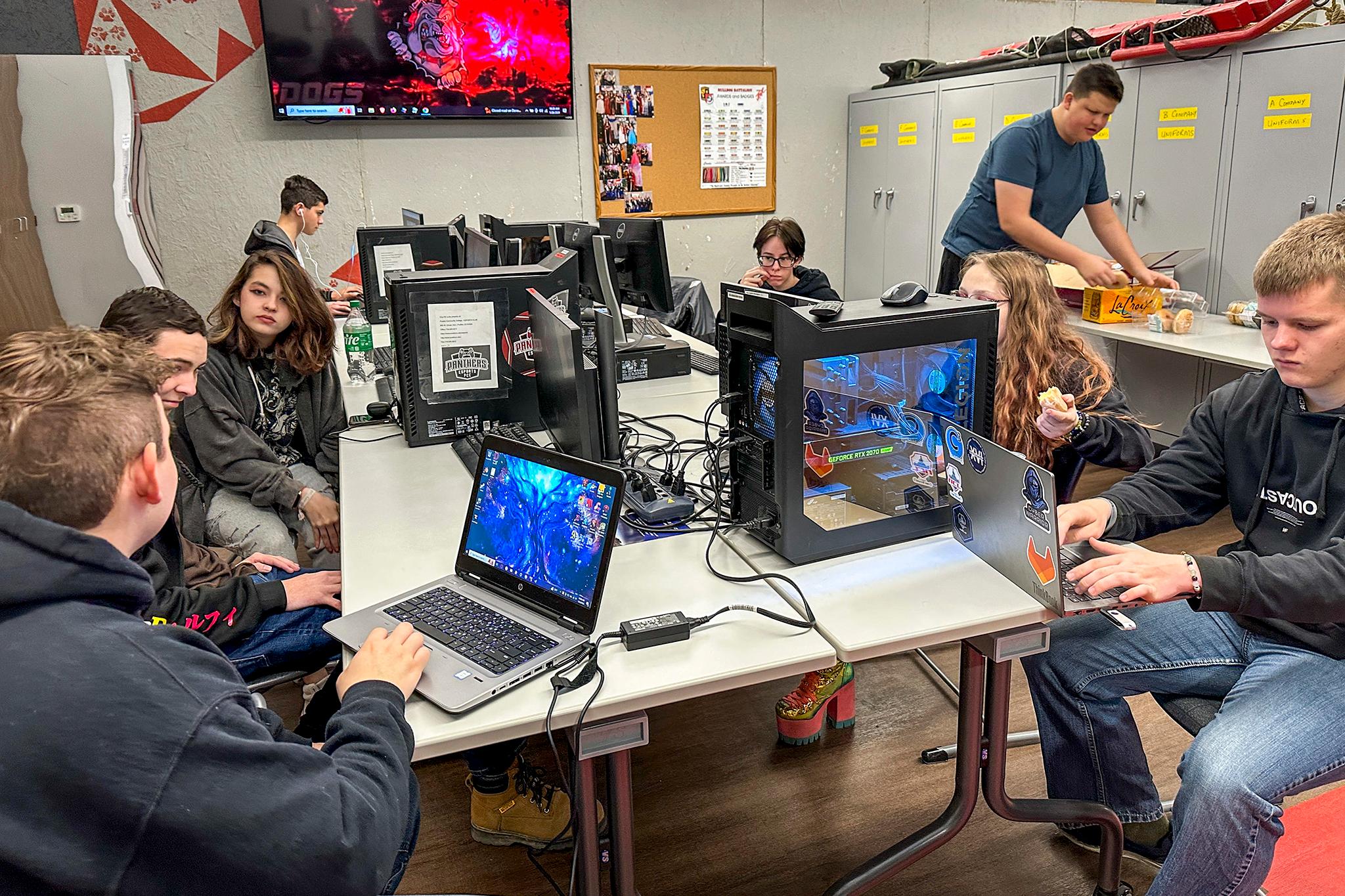
Major John Freeburg sees it all the time in southern Colorado. Kids who like computers, well, they’re going to play video games. It’s an outlet, he said.
“But they don't know that they could be using this outlet to make a lot of money.”
Cybersecurity is the outlet he’s talking about. First of all, it is very lucrative. The state averages 13,000 open computing jobs each month. The jobs have an average salary of $122,000, according to the organization code.org, which has a goal of expanding access to computer science and offers a curriculum used by some Colorado educators. Secondly, it’s a very important job.
“They are the heroes,” said Freeburg, founder of the nonprofit C-Cubed Training and the JROTC instructor at Pueblo’s Centennial High School, though he’s retiring this year. “These are the guys that are going to save the United States.”
While the number of data breaches has fallen globally, they’ve tripled in the U.S., making it the most breached country in the world, with nearly 100 million accounts penetrated last year alone. Freeburg is on a mission to teach students in the southern part of the state cybersecurity skills. Through Pueblo’s Cyber Cube, which Freeburg and his wife, Marcy, founded, they also promote cyber training to former chemical weapons workers in Pueblo.
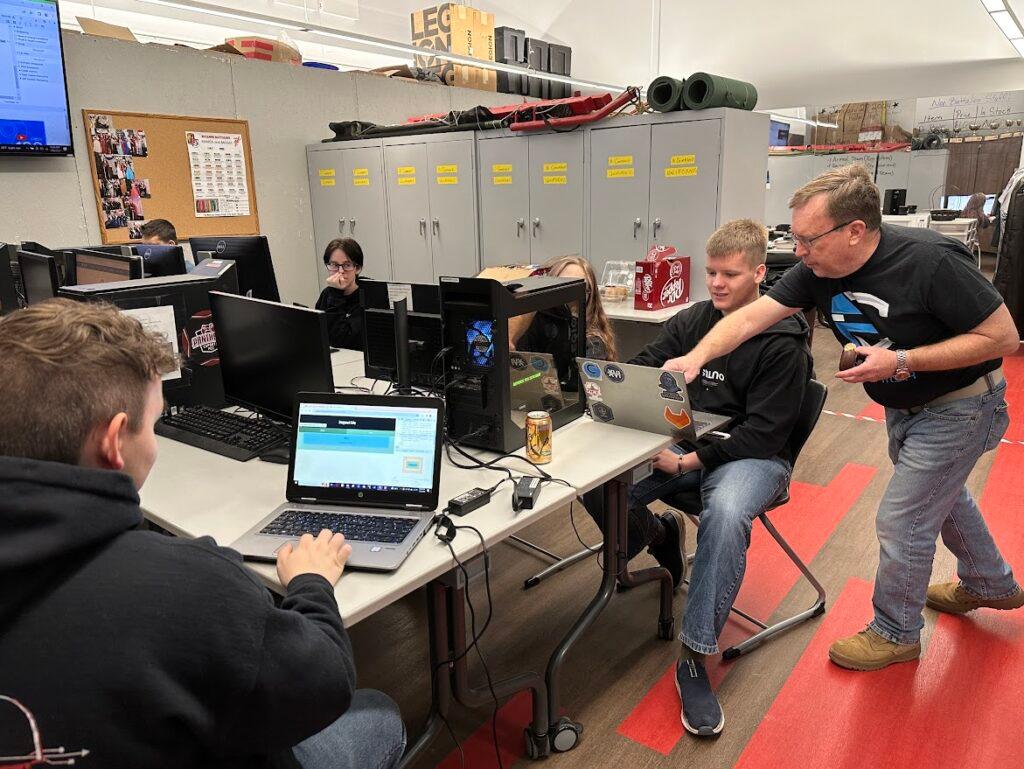
Enter the Cyberdogs
On the day the Pueblo School District 60 doesn’t hold school – Friday - a whole passel of kids shows up to do some marching for JROTC.
But they’re also here to learn cybersecurity skills like cryptography (code-breaking) or steganography (hiding messages within text or images), and ethics through games like CyberPatriot.
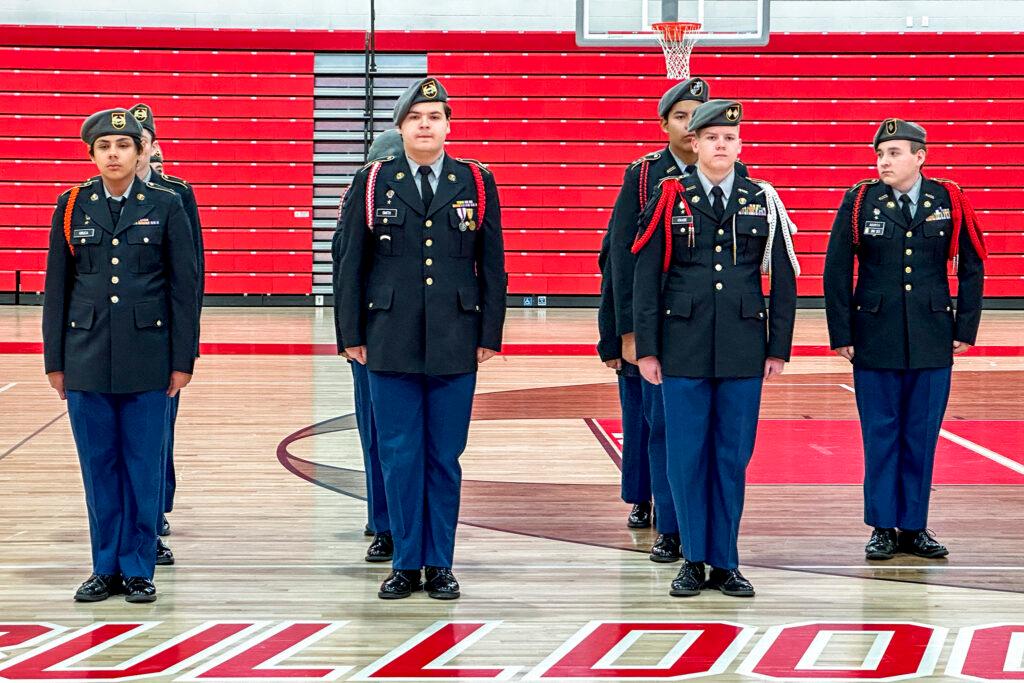
Spread out among a table of blinking servers, the students listen to Evan, a red-headed senior teach a cyber challenge. (Freeburg said eventually some students surpass his knowledge base.)
“At first glance, this is just like a regular website,” Evan tells the students.
Students are instructed to inspect the source code, analyzing the HTML, C++, and JavaScript languages used to make the website. Many of the challenges are based on the game Capture the Flag (CTF.) The challenge is to find a flag, a hidden file or a piece of information or code somewhere in the computer system.
“It’s like an Easter egg, they put it in there for somebody to find,” said Addie, 16, who began attending the club a few months ago after encouragement from her boyfriend.
Students said they like finding hidden challenges and the idea of protecting computers from hackers. Challenges are a way of learning how to spot a computer’s vulnerabilities.
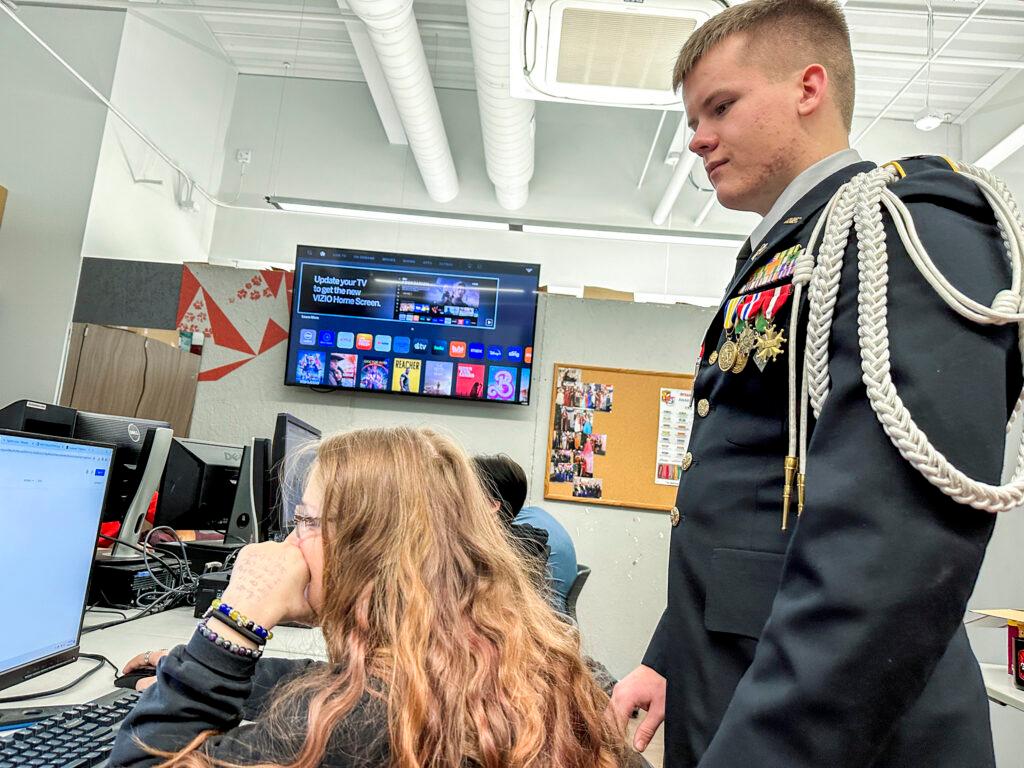
“Addie, whaddya got?”
“On top of my CSS it says myjavascript.js and it has part 3 of 3 on the flag,” she said.
Addie’s first to find the final “flag” or challenge.
“I think it’s kind of fun being able to decrypt and going into the depths of a website and see how it’s built and how you can start doing it yourself … and it’s really fun to learn that’s what people do for a living and we can do it too,” said Addie.
That’s the point Major Freeburg is trying to make. There are local companies ready to hire these kids straight out of high school.
“They have jobs like Threat Hunter and Penetration Tester!” he said enthusiastically.
Freeburg said every day when infantrymen in the army and pilots go to work, they practice.
“But every day that the cybersecurity guys go to work, they go to war. And they fight that war every day … and they’re in a full-up no joking around war…they are heroes.”
South of Colorado Springs, there’s an equity of access issue to computer science
“There are no computer science instructors in the school,” he said of Centennial High School, nor was the new school built with a computer lab.
Small schools in the state are two times less likely to offer introductory computer science than medium and large schools, according to data from code.org. Forty-nine percent of rural kids have access compared to more than 61 percent of suburban kids.
“In fact, if you eliminated in Colorado all the high schools that are below 500 students, we'd be having a very different conversation,” said Sean Roberts, a vice president at code.org. “It would be closer to 80 percent of high schools offering computer science in Colorado. When you look at small high schools it's only 37 percent.”
Freeburg travels to middle and high schools in Swink, La Junta, Lamar and Trinidad and sees students who want to learn more complex computer skills but don’t have access to courses. He just met a middle school girl the other day in La Veta.
“She is sharp, she is ready to go, but there’s no outlet, they’ve never heard of cybersecurity,” he said. “The rural kids just don't get the opportunities.”
Students come to the club for different reasons
Back with the Cyberdogs, the more advanced students troubleshoot problems with Freeburg, like can two random files have the same cryptographic hash algorithm?
Elijah, 16, at a computer across the table, comes to the club to pick the brains of some of the other students for a computer course he’s taking through Pueblo Community College. Students are lucky that more advanced computer classes are available through that route. Elijah’s goal is to be a pilot in the military, starting with a computer science engineering degree.
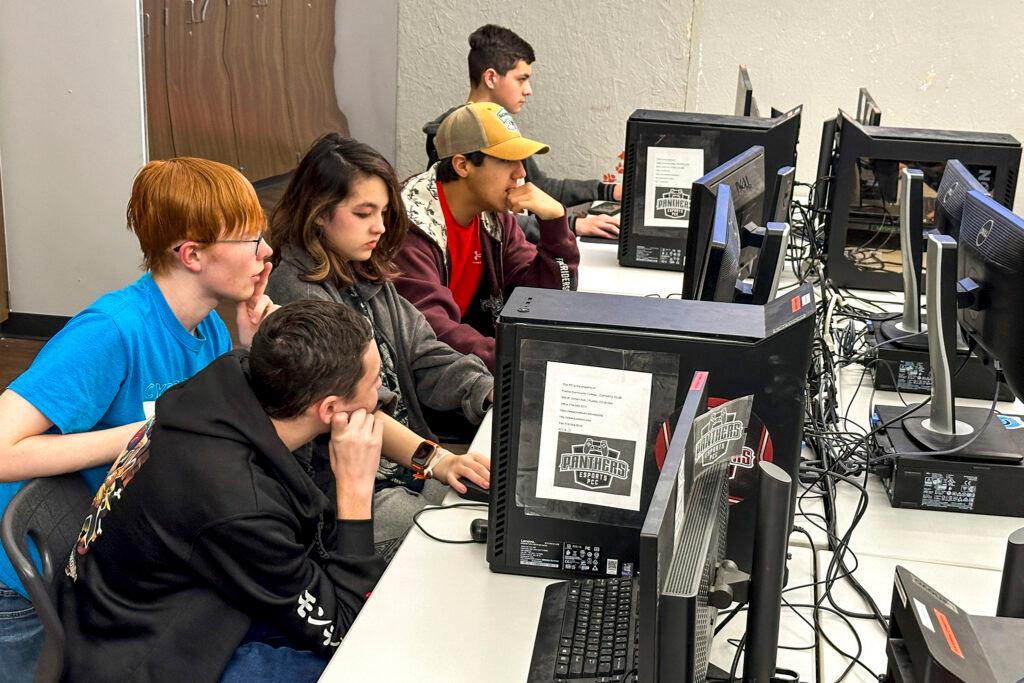
“My dream is to be up there and experience that and see the world from a higher point of view,” he said.
A.J., a senior, said as he learns more through progressively harder challenges, he’s become cautious about his own computer security.
“The more I find out the more I definitely think it’s crazy out there because there’s so many things that can just go wrong … like malware, they could steal all your files, they can spread it, all that stuff.”
RJ, a soft-spoken student dressed all in black with black boots, is on her first day. She likes Roblox, Minecraft and horror video games, “so I thought, why not give it a try?” she said. She’s catching on extremely fast.
Colorado has one of the worst gender gaps in the nation
Only about a quarter of high school girls participated in a computer science course last year. Nationally, it’s nearly a third.
“We are big into pushing girls into cybersecurity,” said Freeburg. “Every game (competition) we play, if there’s a charge, they waive it for girls.”
Hispanic students are two times less likely to take AP exams in the subject than their white and Asian peers.
How does Colorado stack up to the rest of the nation?
Not that great. It is tied for 31st in the nation in offering foundational computer science.
About 54 percent of public high schools in Colorado teach a computer science class, compared to the national average of 58 percent. It’s significantly less than Wyoming (63 percent) and Utah (77 percent.)
The State Board of Education passed updated computer science standards last week
But unlike other academic standards, computer science standards are voluntary. Colorado does not require all high schools to offer computer science and it isn’t required to graduate because that’s determined at the local level. But it’s also why it’s led to inequities in who has access to computer science.
Roberts, from code.org, said the only states that have been able to solve the small schools’ gap are those that have made computer science a graduation requirement. He knows that won’t happen in Colorado, where local districts control graduation requirements. But Roberts recommends creating a statewide plan, a marshaling of state and district resources “to figure out what are best practices and what do we want to do. What gets prioritized gets done.”
In 2023, more than 2,000 students took AP computer science but none got funding for the exams because there wasn’t enough in the state’s incentive fund.
Colorado does have some positives. The state has a computer science resource bank for teachers. Teachers can get an endorsement in K-12 computer science. There is a pot of money to incentivize teaching computer science, but schools say it’s underfunded so payout doesn’t occur.
Roberts said teachers don’t have to have a degree in computer science to teach it.
“You can train existing teachers to do this,” said Roberts. “It doesn't have to be a chicken and egg situation where we have to wait for the teaching workforce to catch up to us. We can do both at the same time.”
At Centennial High School in Pueblo, the math teacher can offer AP Computer Principles, the introductory course.
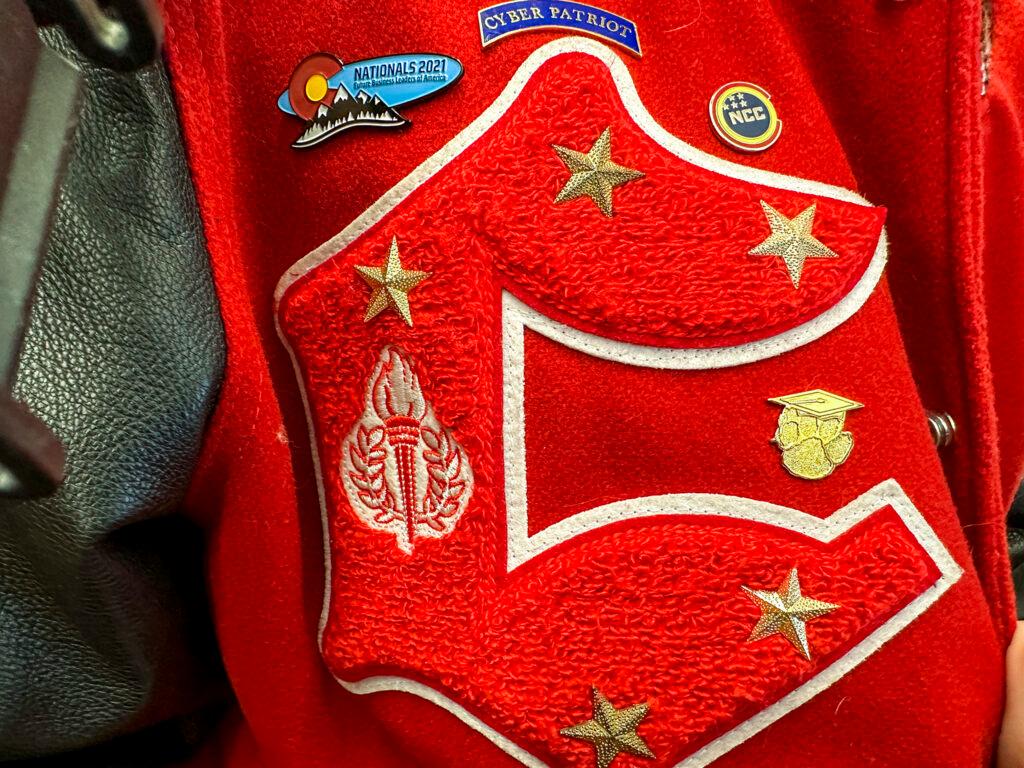
For many of these students, the club is a lot more
Axel, now a third-year computer science and cybersecurity student at a local college, said the Cyberdogs saved him.
“It helped me push myself in ways I couldn’t before,” he said.
Axel said school wasn’t challenging but he had trouble focusing. He said like many gifted students, he didn’t feel like he was reaching the potential other people said he had or the expectations he put on himself.
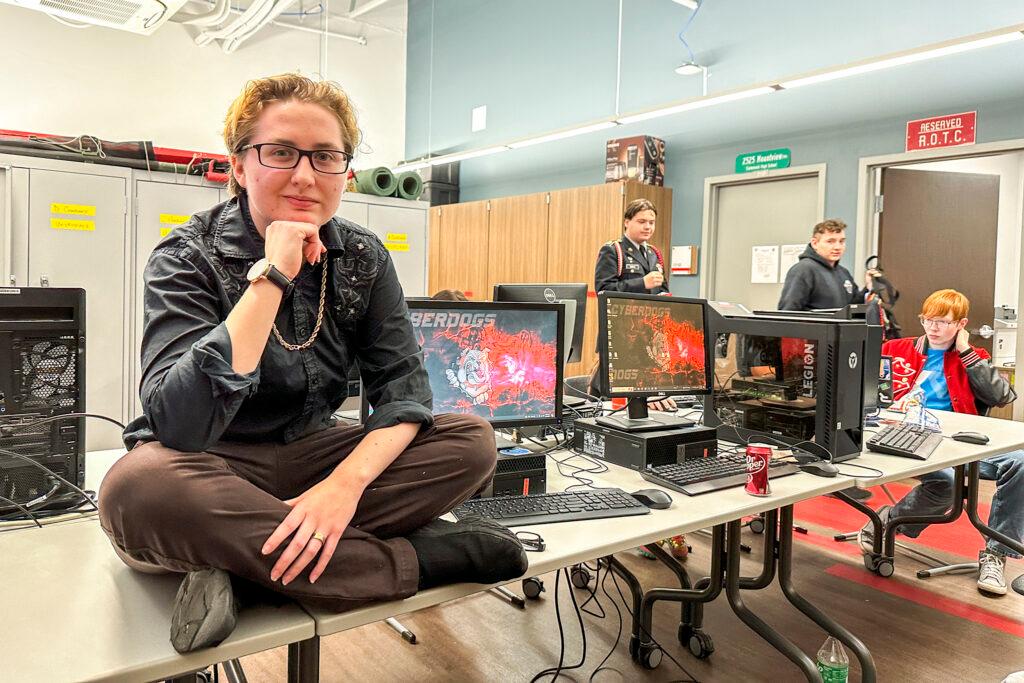
“You kind of crumble under that. But if you have a community like this, it is so helpful. Cyber really helped me. I feel like I was doing something with my time and it helped me not feel like a failure anymore.”
He said what Freeburg is doing is important for cities like Pueblo that often feel forgotten about, and where Axel said, some parents don’t push their kids hard enough. They need challenges like Cyberdogs. Right now, just over half of Colorado’s high schools offer computer science.
“For every kid like me who got this (opportunity), there’s hundreds that didn’t. And there’s hundreds of kids who could be doing something great and they won't be able to, or it'll be harder for them and I really would not want someone to miss out on something like this,” said Axel.
Major Freeburg would like to see Pueblo like the Santa Clara Valley in the 1960s where young people flocked to the booming electronics and defense industries. He said if Pueblo could get just a 1/20th of the new defense and computer companies that set up shop in Colorado Springs and investment in Cyber Cube, “that can change the whole world for people down here.”








